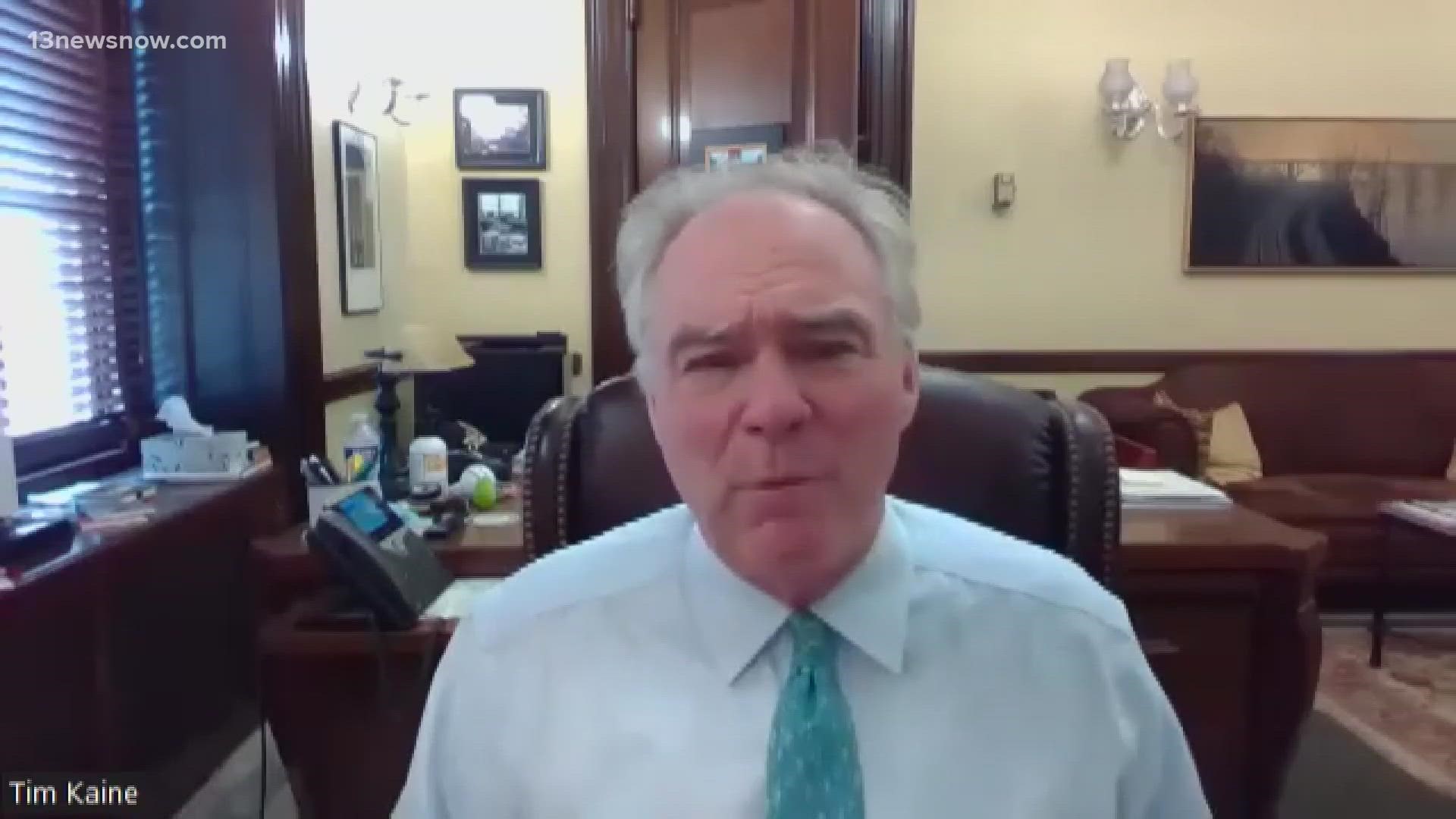WASHINGTON — When the United States went to war with Iraq in 1991 and again in 2003, there was no formal war declaration by Congress.
Instead, each time, there was an "Authorization for the Use of Military Force." And even though both wars are long since over, amazingly, the old authorizations are still in effect.
Now, there is a new effort to get rid of them.
"Why should we repeal the war authorizations with Iraq? Because the war is over and has been for a decade. Because Iraq is no longer an enemy but is in fact a security partner," said Sen. Tim Kaine (D-Virginia).
Kaine and Sen. Todd Young (R-Indiana) on Thursday introduced a new bill to repeal the authorizations with 11 Republicans and 11 Democrats as co-sponsors. Additionally, a House version of the measure has four Republican and four Democratic co-sponsors.
The move would reassert Congress's Constitutional role in deciding when, where, and how long American forces are sent into harm's way, and with what mission.
"The war-making power in Article One -- we shouldn't go to war without a vote of Congress -- is maybe the most solemn power that's granted to Congress in Article One," said Kaine. "But, it's one that Congresses have often frankly tried to abdicate the decisions by allowing Presidents to initiate wars without the vote of Congress."
Notably, the new bill does not seek to repeal the 2001 Authorization for Use of Military Force, which came about in the immediate aftermath of 9/11. That measure has provided legal authority for many U.S. counterterrorism operations in dozens of countries over the past 22 years.
Kaine said the bill will be referred to the Senate Foreign Relations Committee. If successful, it would mark the first time in 52 years that a use-of-force authorization had been terminated.
The last time was in 1971 when Congress repealed the Gulf of Tonkin Resolution providing statutory authority for the Vietnam War.

